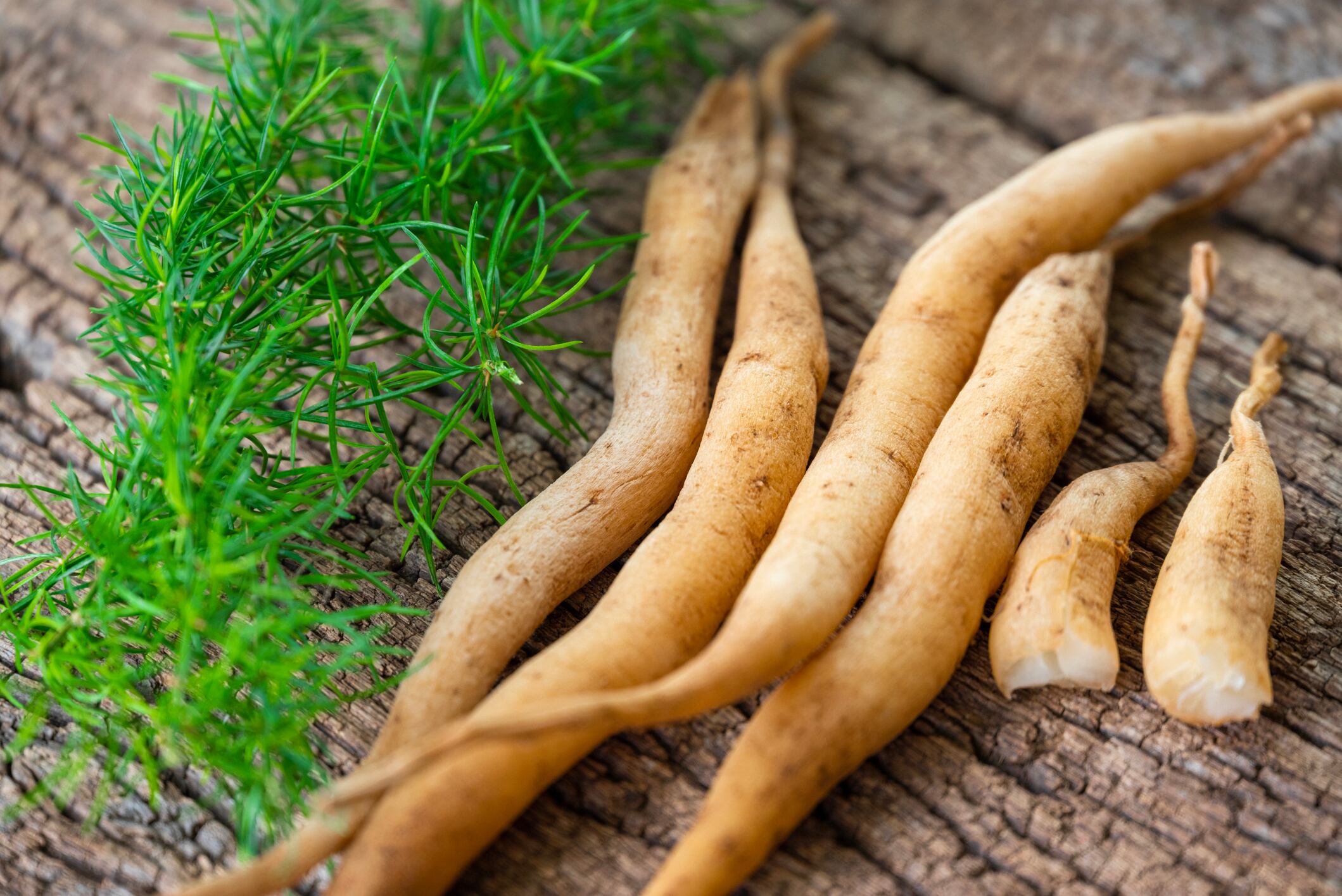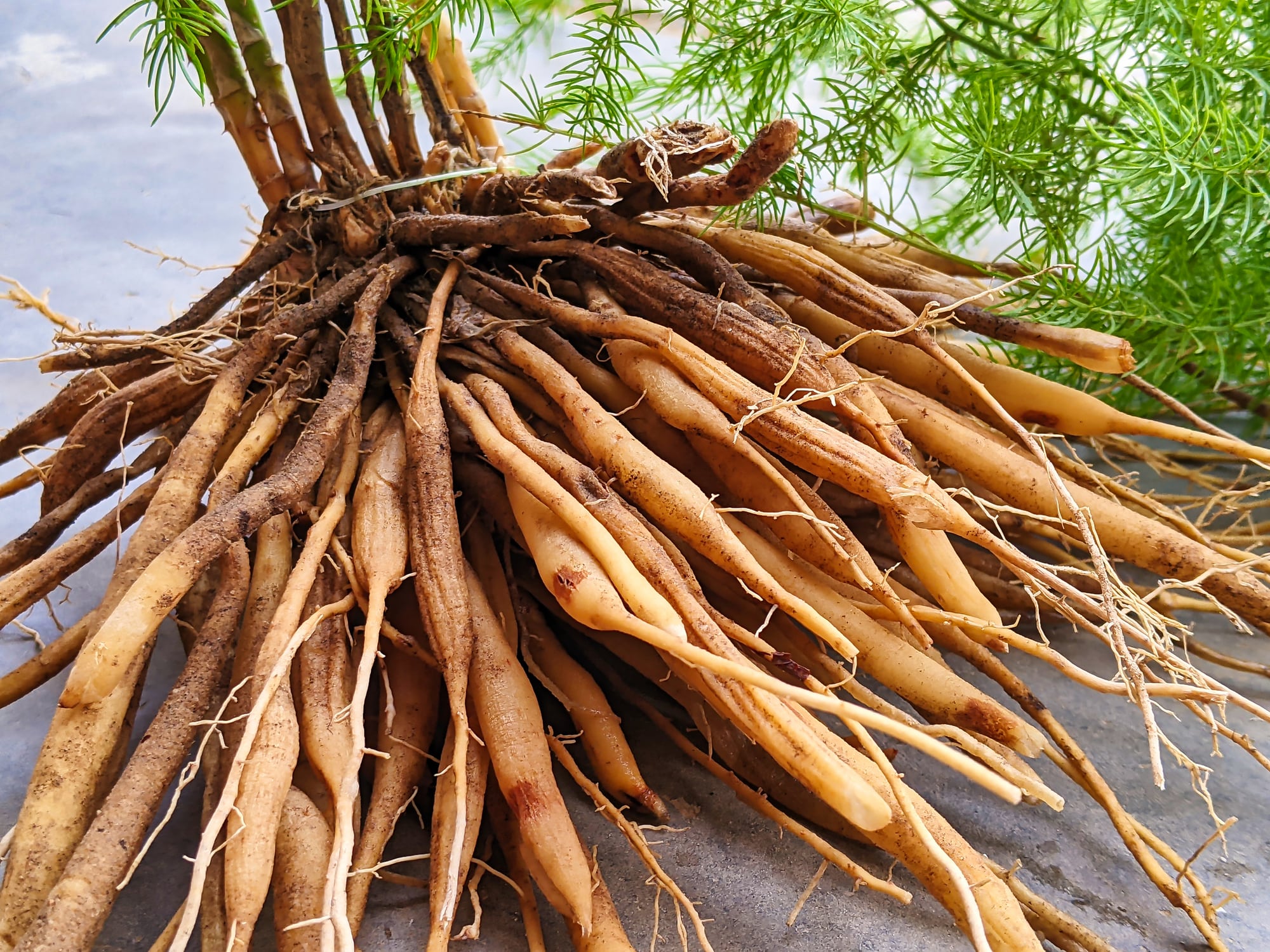Four months of supplementation with the standardized shatavari (Asparagus racemosus) extract was also associated with significant improvements in a range of psychological symptoms of menopause, including mood swings, anxiety and brain fog.
Xeya Modern Shatavari is produced by Laila Nutra and distributed by New Jersey-based NXT USA.
Eric Anderson, managing director NXT USA, welcomed the study, stating: “Women’s concerns have been neglected for too long. This study shows real benefits for women dealing with perimenopausal symptoms, dramatically improving quality of life for the participants.
“This is the NXT standard of comprehensive clinical evidence—incorporating our comprehensive ‘four pillars of validation’ in study design that measures patient reporting, physician assessment, biomarkers and physical tests. This is the most comprehensive study on shatavari published to date.”
Traditional Ayurvedic use
Shatavari, known as the queen of Ayurveda, is reported to contain phytoestrogens, compounds known for their weak estrogen-like effects. Previous studies have found that shatavarins, key phyto-actives in shatavari, may interact with estrogen receptors.
As reported earlier this year by NutraIngredients, NXT USA launched Xeya on the eve of Expo West 2025 in Anaheim. The company sees the ingredient as offering a “natural, effective, and safe solution for women at every stage of life”. Xeya is standardized to 15% shatavarins to promote hormonal balance, support menstrual health, ease symptoms of PCOS and alleviate the challenges of perimenopause and menopause.
These claims are supported by findings from the new study, led by scientists at the Lifeline Hospital & Research Center in Uttar Pradesh, India and published in Functional Foods in Health and Disease.
Study details
The researchers recruited 75 early perimenopausal women aged between the ages of 40 and 50 with mild-to-moderate vasomotor symptoms (VMS). The women were randomly assigned to one of three groups: placebo or 50 mg per day or 100 mg per of Xeya Modern Shatavari.
Results showed that, over 120 days of supplementation, the higher dose group experienced a 77.3% improvement in somatic symptoms (such as hot flashes, fatigue and sleep disturbances) and a 74.5% improvement in psychological symptoms (such as mood swings, anxiety and brain fog).
Both doses of the shatavari product produced significant decreases in the Menopausal Rating Scale, the researchers reported. Specifically, this score decreased by 51.4% and 72.9% in the low and high dose groups, respectively, compared to 22.8% in the placebo group.
Significant decreases were also recorded for the Hot Flash Weekly Weighted Scores, with the 50 mg and 100 mg group producing 27.6% and 39.8% reductions, respectively, compared to a 7.7% increase in the placebo group.
The researchers also reported dose-dependent improvements in four different hormones—follicle-stimulating hormone (FSH), luteinizing hormone (LH), anti-Müllerian hormone (AMH) and 17β-estradiol (E2). Improvements were also reported for skin and hair quality.
“Overall, this randomized, double-blind, placebo-controlled trial is among the first to clinically evaluate an enriched and standardized A. racemosus root extract specifically in perimenopausal women,” the researchers wrote. “The study establishes a direct association between symptom relief, such as reductions in hot flashes and menstrual discomfort and objective endocrine markers including FSH, LH, estradiol, AMH and ovarian follicle count.
“These findings extend beyond traditional anecdotal or preclinical evidence, offering robust clinical support for shatavari as a natural, multi-targeted therapeutic option to promote women’s health.”
NXT-USA’s Anderson said the study’s publication is timely given shatavari’s emergence as the partner to ashwagandha—known as the king of Ayurveda—which has experienced significant growth over the last several years.
“We expect shatavari to really take off this year to support women’s wellness across all age groups,” he said. “This study provides supplement brands with the confidence to offer differentiated products that serve women of various age groups and demographics.”
Source: Functional Foods in Health and Disease. 2025, doi: 10.31989/ffhd.v15i7.1684. “Clinical assessment of CL22209, a standardized proprietary extract of Asparagus racemosus, for mitigating vasomotor and menstrual symptoms in perimenopausal women: A randomized, double-blind, placebo-controlled study”. Authors: P. Yadav, et al.




